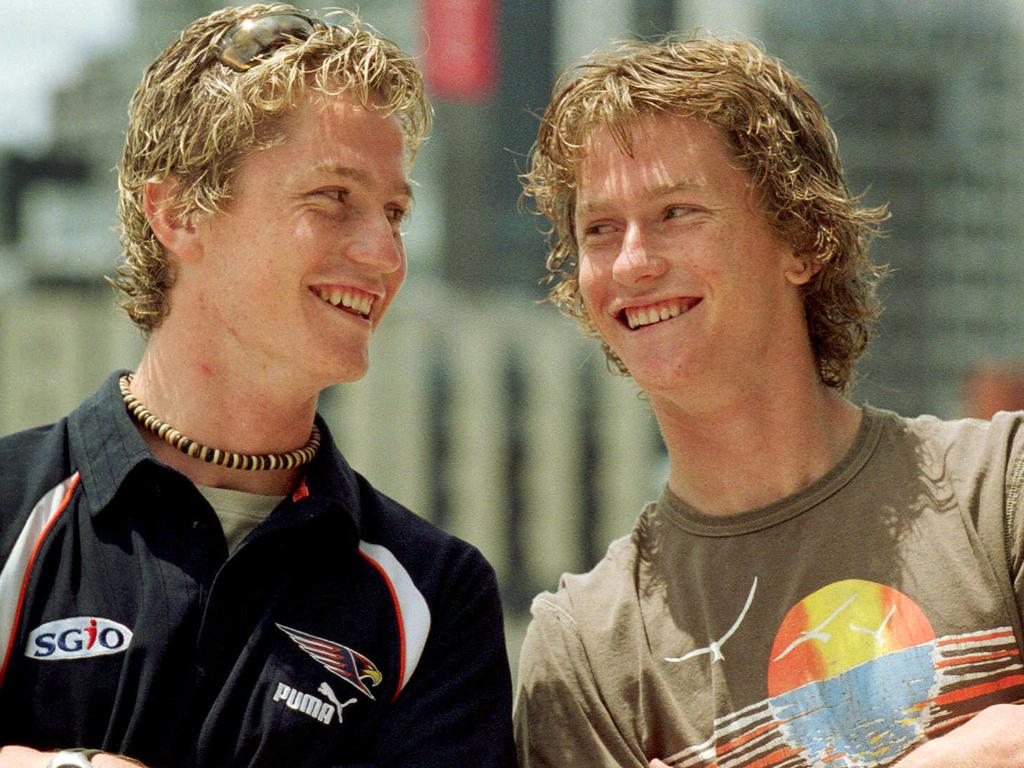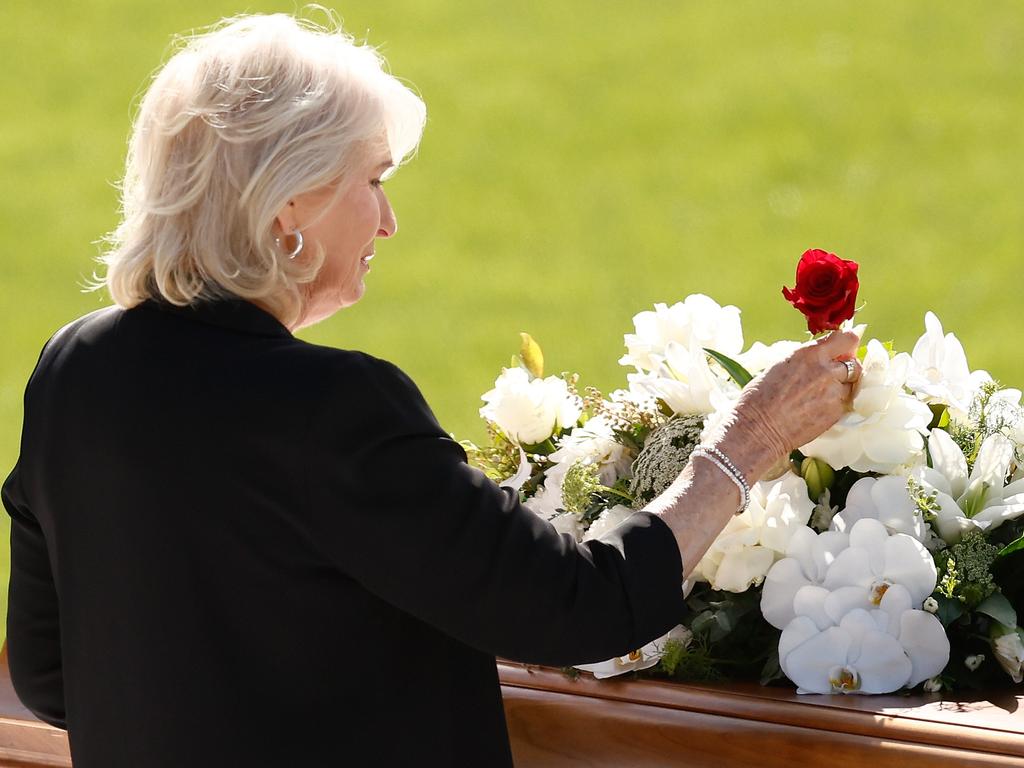Andrew Bolt: Suicide is not just cruel to survivors but socially contagious
With the passing of Adam Selwood we see the real burden is the pain those left behind by a suicide must carry for the rest of their lives.
Opinion
Don't miss out on the headlines from Opinion. Followed categories will be added to My News.
Three months ago, I saw Troy Selwood’s life celebrated before a crowd at Geelong’s football ground after he had killed himself.
I thought: “Oh, no.”
Now his twin brother Adam has killed himself, too, causing an ocean of grief to his wife, parents and brothers, and especially his two children.
Can we talk about that instead? The devastation that suicides leave behind? The tears, the turmoil, a lifetime of feeling abandoned? The anger and often the guilt at somehow not having done more?
Let’s have more talk about that instead of what I hear too often – commemorating the dead as tragic souls we could have, should have, saved. Elevating the dead into tragic heroes of their own lives, to whom much was owed and from whom nothing better should have been expected.
That’s what so scared me about Troy’s funeral at Kardinia Park.
Be clear. I don’t wish to criticise Adam or Troy.
I didn’t know them and can only guess at the misery, despair or mental challenges that had them end their lives – Troy at 40, Adam at 41.
That said, can anyone doubt that Troy’s suicide helped to trigger Adam’s? Should that now change how Troy’s death should actually be remembered – as not the end of great suffering, but the cause of even more?

You see, suicide is not just cruel to survivors but often socially contagious.
In 2022, former Channel 10 TV host Erin Jayne Plummer killed herself on a Manly beach. Two years later, her widower Alan killed himself, too, on Freshwater Beach, leaving their three girls orphans, the oldest just 18.
Surely it is important when publicly remembering the parents to note how much their suicides hurt their daughters.
What’s more, we should never forget that one suicide often encourages another. A 2022 study in South Korea, for instance, found survivors in the family of a person who’d killed themselves were three times more likely to do the same than someone in the family of a person who’d died of other causes.
It’s not just relatives who are left more vulnerable. In 2011-12, 12 people aged under 24 – all in the City of Casey and Cardinia Shire – committed suicide. One school lost four children in a year.
One mother found on her dead daughter’s phone a group chat about harming themselves, and responded: “Can everyone please stop calling and messaging (my daughter). She doesn’t have her phone. I do. And by the way there is no 3G in heaven.”
I don’t say all this to be cruel, and I certainly don’t want to return to the days when suicides were so feared and shunned that the Catholic Church wouldn’t until 1983 let the bodies of those who’d killed themselves be buried in church grounds.
But we also shouldn’t now ignore the suffering a suicide causes when we speak of the dead.
A former policeman told me a couple of weeks ago he’d once had to deal with those suicides in Casey and Cardinia.
The young who were left behind had often seen someone they knew – maybe a misfit or bullied in life – become a celebrity after their suicide, hailed at their funeral as a hero-victim who’d suffered much wrong.
It sent a deadly message.
A breakthrough came when the mother of one girl who’d killed herself told mourners she wasn’t going to speak of how wonderful her daughter was, but of how much grief and anger her daughter had caused those who’d loved her.
Remember my pain and anger, she pleaded to her daughter’s fellow students. That cluster of suicides soon stopped.

Such things are so important to say, and as lovingly as possible to people with suicide on their minds. Not just that their lives have value, but their deaths will cause pain.
I’m told by a psychologist close to me who counsels the suicidal that at times these sufferers are overwhelmed by common thoughts: “I’m a burden”, “people are better off without me”, and “I’m in so much pain”.
The trick is to work out prompts for them to then get help before it’s too late. “Later, they will tell you how glad they are they’d didn’t do anything.”
Well, remind them again and again with each suicide that, no, those left behind are not better off without their husband, wife, daughter or son. No, the real burden is the pain those left behind by a suicide must carry for the rest of their lives.
For pity’s sake, stay with us.
More Coverage
Originally published as Andrew Bolt: Suicide is not just cruel to survivors but socially contagious








